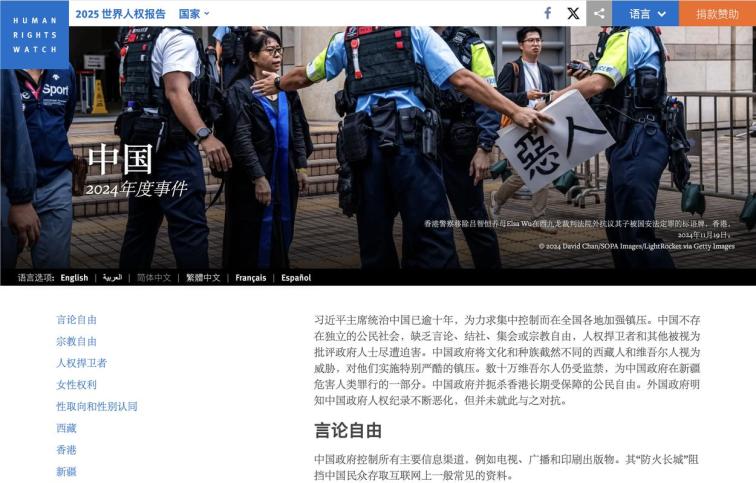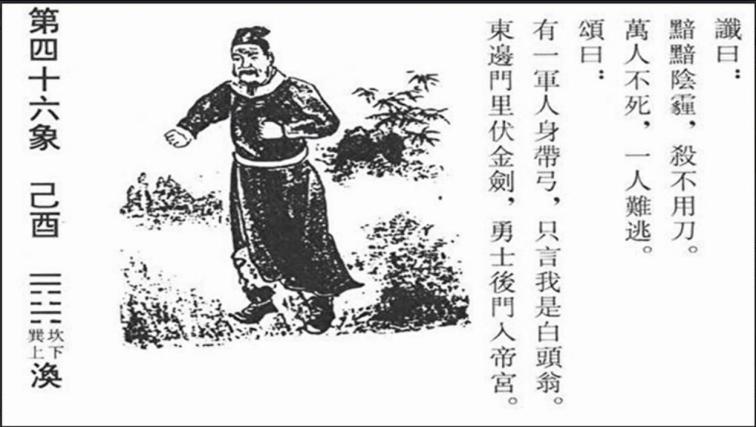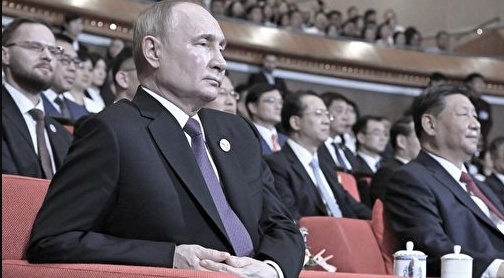Graduating from university now often leads to unemployment, and even those who return from studying abroad struggle to find jobs. (Video screenshot)
[People News] July and August mark the graduation season for university students in mainland China. However, with the country facing a severe economic recession, the unemployment rate for graduates is expected to hit a new high. This year, a new slogan has gained popularity online: “As a university student, you want me to farm, raise sheep, or work in a factory? Even a dog wouldn’t do that.” “Damn, if the dog doesn’t do it, I will.” In their quest for basic sustenance, blue-collar jobs have become a favoured option for many graduates.
The Ministry of Education of the Communist Party of China predicts that by 2025, there will be 12.22 million university graduates entering the workforce, an increase from 11.79 million in 2024 and 11.58 million in 2023.
Back in the graduation season of 2023, China faced what was termed the “most difficult graduation season” after three years of strict pandemic controls, resulting in an economic downturn. To address the mounting employment pressure, many universities resorted to “falsifying” employment rates. The official employment rate for the 2023 graduating class was reported at 55.7%; however, internal documents indicated that even in major economic hubs like Shanghai, the actual employment rate for fresh graduates was below 30%.
Now, two years later, experts forecast that the employment landscape in 2025 will be even more challenging. The pressure is mounting not only for university students but also for graduate and doctoral students.
In their pursuit of basic sustenance, university students are compelled to forgo white-collar jobs that align with their education and instead choose blue-collar jobs that require physical labour, such as food delivery, working as waitstaff in restaurants, or driving for ride-hailing services.
Some individuals are entering factories. Before graduation, I held the belief that 'as a university graduate, how could I not find a good job?' and boldly declared, 'Going to a factory? Even dogs wouldn’t do that.' However, reality quickly hit me hard: 'Damn it! What I’m doing is working in a factory.' 'The more I work, the more I earn; the more I earn, the more I work.'
Others are taking jobs in restaurants. 'I’m a university student, after so many years of education, you want me to be a waiter?' Damn! I actually enjoy this kind of job where I sleep later than dogs and wake up earlier than roosters.'
There are also those who set up stalls on the street. 'I’m a university graduate, and you want me to set up a stall?' 'Set up! I absolutely love setting up stalls!'
A university graduate named Zhang, who studied in a marketing-related field, has turned to the domestic service industry after three years of a challenging job search and employment experience. She cares for preschool children around five years old, working as both a nanny and a tutor, spending most of her time playing with the children, and occasionally helping the elderly in the household with chores.
She candidly admits that at that time, she had a 'laid-back' attitude, thinking that any job that could support her would suffice.
On the Chinese social media platform Douban, an interest group called 'Light Physical Work Exploration Alliance' was established in 2022, and its membership has doubled over the past year, currently exceeding 88,000 members. According to the '2024 Blue-Collar Talent Development Report' released by Zhaopin in June this year, the number of job applications for blue-collar positions from individuals under 25 increased by 165% in the first quarter of 2024 compared to the same period in 2019.
The growing interest among mainland university students in blue-collar jobs has led to increased competition in this sector. Feng Yue (a pseudonym), 25, shared with the United Morning Post that during her time as a security guard in 2023, she earned a monthly salary of 3,800 yuan without needing to provide a fire monitoring certificate. However, as more individuals born after 2000 and 2005 pursue this line of work, it is now the case that 80-90% of security jobs require certification.
After graduating with a degree in English, Feng Yue struggled to secure a position in graduate school, civil service, or public institutions. Over the next six months, she took on various roles, including security guard, assembly line worker, and convenience store clerk.
Netizens have commented that when everyone holds a university diploma, it becomes a worthless piece of paper. Additionally, they argue that jobs should not be categorised by prestige; the only real distinction lies in the input versus output. Spending millions to study abroad only to return and work a job that pays a few thousand yuan a month is clearly not a wise investment, unless the job is intended to be temporary.
On March 5, the National People's Congress of the Communist Party of China convened, where Premier Li Qiang stated in the government work report that the government would expand employment and entrepreneurship opportunities for college graduates and other young people, enhance the protection of rights for flexible and emerging labor forms, and broaden the pilot program for occupational injury insurance.
Nevertheless, amid ongoing economic recession and a wave of corporate bankruptcies, experts widely believe that these 'slogan-type policies' are unlikely to effectively address the employment challenges faced by university students.
During the Chinese Communist Party's "Two Sessions," Bai Yansong (白岩松), a former member of the Chinese People's Political Consultative Conference and a host at CCTV, raised concerns for young people in China on several occasions. He argued that young people represent a genuinely disadvantaged group in society and urgently require policy support. He recommended enhancing welfare benefits for young people, including ensuring that the social security of "flexible employment workers" remains uninterrupted.
The term "flexible employment workers" has been promoted by mainland authorities in recent years and refers to individuals who cannot secure stable jobs. These workers are often compelled to take on roles such as self-media creators or delivery personnel, making it challenging for them to access the social security and labour protections typically available to civil servants, employees of state-owned enterprises, or those in conventional private companies.
In an analysis published in the Liberty Times, Professor Hong Jingfu (洪敬富) from the Department of Political Science at National Cheng Kung University pointed out that China now includes "flexible employment" in its statistics. This means that if someone works just one hour a week, they are not counted in the unemployment rate. For instance, working as a ride-hailing driver or delivery worker for just one hour does not count as unemployment, and farmers working in rural areas are also excluded from the urban unemployment statistics. Can this truly reflect the actual data? Currently, the mainland is sending a significant number of young people to work in remote villages, and by placing them in rural areas, they won't be counted in the unemployment rate. Ultimately, it seems likely that the Chinese Communist government will claim it has met its employment targets. △











News magazine bootstrap themes!
I like this themes, fast loading and look profesional
Thank you Carlos!
You're welcome!
Please support me with give positive rating!
Yes Sure!